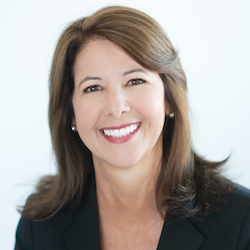
and CEO Kimberly S. Lody
Capital Senior Living’s strategy to improve the company’s operating performance includes replacing the chief operating officer, hiring a chief revenue officer, eliminating 250 non-caregiver positions and restructuring the sales and marketing function, among other moves, President and CEO Kimberly S. Lody said Thursday morning during the company’s fourth-quarter and full-year 2018 earnings call.
The efforts are part of a four-pronged strategy signified by the acronym SING, which stands for stabilize, invest, nurture and grow, she said.
“We are deeply disappointed in the company’s 2018 operating performance, particularly with respect to the primary driver of our revenue, which is occupancy,” Lody said. “In my assessment, we took too long to respond to emerging market conditions, and we have now taken a number of actions to address these deficiencies.”
COO Brett D. Lee, who had joined Dallas-based Capital Senior Living in August 2017, has left the company effective immediately, the company announced in a press release issued in conjunction with the call.
“In reflecting on the company’s operating performance in 2018 and charting a course for 2019 and beyond, we determined that a change in operational leadership is necessary at this time,” Lody said in the release.
Capital’s revenue in the fourth quarter was $115.1 million, a 1.6% decrease from the fourth quarter of 2017. Revenue for the full year of 2018 was $460 million, a 1.5% decrease from 2017, Chief Financial Officer Carey Hendrickson said. “The decrease is related to lower financial occupancy, partially offset by a nominal increase in average rent,” he added.
Lody, who assumed the CEO position in January, said she will serve as COO while Capital searches for Lee’s replacement. She has been a member of the company’s board since 2014 and was part of a three-person executive committee of the board overseeing the development of the company’s strategic and operational direction after Larry Cohen in August 2018 announced his intended retirement as CEO.
Also as part of Capital’s stabilization efforts, Lody said, the company eliminated 250 positions, none of which were caregiving positions, in February. The decisions were based on national standards, each community’s business mix and resident needs, she said.
“As the business develops, we’ll continue to apply these labor standards and monitor utilization through our recently implemented labor management tools,” Lody said.
Capital also has restructured the sales and sales management function, eliminating regional sales manager positions and having sales professionals report directly to community executive directors rather than be part of a separate vertical organization alongside operations.
“A critical element of our plan is ensuring that our community leadership teams are cohesive and focused on winning together with aligned operational goals, activities and incentives,” Lody said. “Establishing strong community-based leadership teams is not only an element of the strategy to stabilize the business but will also play a leading role in the execution of our future plans.”
As part of the “invest” part of its strategy, Capital has hired Michael C. Fryar to fill a newly created role, chief revenue officer. He joined the company on Monday.
Fryar most recently was vice president / North America Marketing for GN Hearing, part of the medical device division of the GN Group, which focuses on intelligent audio solutions for medical, professional and consumer markets. Lody was president of GN Hearing before becoming president and CEO of Capital Senior Living.
At GN Hearing, Fryar led marketing strategy, product management, communications, technical support, consumer support and specialty sales teams for multiple business units across the continent. At Capital, he will lead marketing, sales support, corporate partnerships and “commercial excellence” activities, which Lody described as “everything from our go-to-market strategy to the detailed executional plans about developing those leads and then taking them through the resident experience to improve the business.”
“I have first-hand experience with Mike’s extensive track record identifying and executing revenue-generating opportunities, which will be important component to our strategy moving forward,” she said.
The CEO said Capital also has streamlined and restructured health and wellness benefits for 7,500 employees to be more “focused on wellness while minimizing claims.”
“The plans were made available in January,” Lody said. “The response has been in line with our plan and fulfills a need for competitive benefit offerings to drive improved recruitment and retention of our people.”
Compensation programs also have been redesigned, she said, and the company plans to expand health and wellness programming offered to residents.
The company also intends to spend $25 million to $30 million in capital expenditures in 2019, including $15 million to $20 million for necessary physical infrastructure and $10 million to $15 million upgrades and improvements at some communities to keep or improve their competitiveness, Hendrickson said.
Finally, many initiatives related to the “nurture” and “grow” aspects of the strategy, Lody said, “will come out of our focus on commercial excellence.”
“We are already engaged in many successful, impactful activities that provide significant value to our residents in each of our 129 communities, and we expect initial commercial excellence activities to focus on leveraging these existing best practices across our portfolio,” she said.



